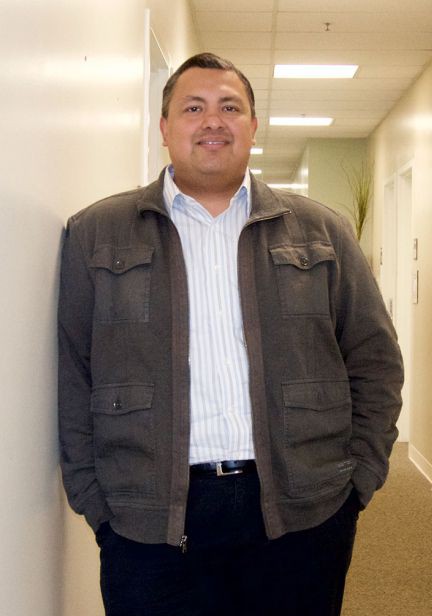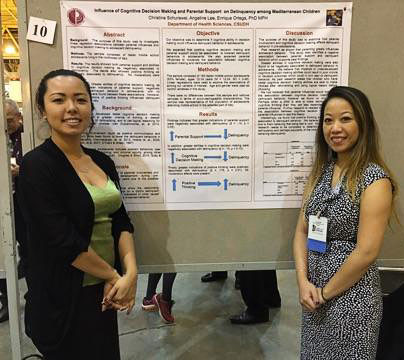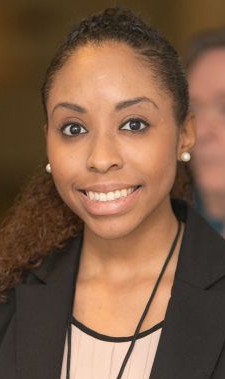
Working with researchers in Sweden and Italy, Enrique Ortega, an assistant professor in the Department of Health Science at California State University, Dominguez Hills (CSUDH), is providing his students with unique access at the undergraduate level to not only research but also international collaboration.
Ortega, who came to CSUDH as an adjunct faculty member in 2010, and his health science students have collaborated with researchers at the University of Turin in Italy and Orebro University in Sweden to gather information and form hypotheses about the individual and environmental causes or health outcomes related to mental, physical, and social health indicators.
“Both institutions collected behavioral, social and psychological health indicators from large samples in their countries. With that data, I taught my students how to understand and analyze collected datasets to develop their own testable research hypotheses,” said Ortega, an Alhambra resident who received his Ph.D. in preventive medicine from the University of Southern California. “Upon coming up with their hypotheses, we begin working with my collaborators [in Italy and Sweden] on statistical analyses and the development of more hypotheses that are of interest to each institution and the research students.”
To provide him more time to work on his research and expand the number of students involved with the project, Ortega was selected for CSUDH’s Faculty Scholars Program, which awards faculty involved in undergraduate research, scholarship, and creative activity the funding to teach one fewer of their classes each semester to continue their research with their students.
Ortega and 19 students began the research project in spring 2013, prior to his selection in the Faculty Scholars Program. The funding from the program enabled him to continue his research from the spring semester 2014 through spring 2015. The grant also helped him expand his pool of student researchers to 35.

“Undergraduates bring very different perspectives regarding the potential causes of health phenomena. Trained researchers tend to think in very academic and theoretical ways. This of course is a result of the years of training and the field experience we have,” said Ortega. “Students are a lot less guided by traditional or structured ways of thinking. They bring fresh ideas and are able to relate to problems from a different vantage point.”
Eleven of Ortega’s students presented their research at the Undergraduate Conference in Public Health at John Hopkins University in November 2013. Others presented their work at last year’s American Public Health Association’s 142nd Annual Meeting and Exposition in New Orleans, and at the Southern California Conference on Undergraduate Research in Irvine. Twenty-seven of Ortega’s students presented their research at CSUDH’s Student Research Day in February 2014 and last week during the 10th Annual Student Research Day.
“The research I did with Professor Ortega and the universities overseas helped me really understand how research works. I learned the methods of conducting this type of research, statistics and how important the hands-on approach really is,” said Christine Schurawel, a health science major. “I also learned how to carry myself professionally, and got the chance to meet one of the researchers from Italy at a professional conference. She was very sweet and gave me great feedback on my work.”
Schurawel presented with fellow health science student Angeline Lee and Ortega in New Orleans. They chose their study topic, “The Influence of Cognitive Decision Making and Parental Support on Delinquency among Mediterranean Children,” to explore the correlation between the two, and because Schurawel is interested in mental health in adolescents. She enjoyed learning the perspectives of others doing similar research during the exposition.

“I was able to meet a lot of students from different schools and programs, and other people at the conference with the same interests as me,” said Schruawel. “And I’m sure the professionals I met who work in public health will prove to be great resources for my future research endeavors.”
Melanie Duarte, a health science major who will graduate this spring, enjoyed working with the data from Italy and Sweden and coming up with hypothesis, and said she can relate to the data because she works part-time with middle school students preparing academic activities that involve math, science and history.
Duarte presented her findings during Student Research Day last week. Her presentation was entitled “Associations of Adolescent Risk Taking with Mental and Social Health,” and she gives Ortega some of the credit for the positive feedback she received after her presentation.
“It was my first time doing research so professor Ortega would meet with me often, sometimes twice a week,” she said. “I would send him my presentation via email and he would make revisions and suggestions and let me know everything that needed to be done to make it a quality presentation. He was always there for me.”